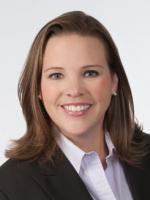A unanimous three-judge panel of the U.S. Court of Appeals for the Ninth Circuit in Duguid v. Facebook, Inc., has reaffirmed the broad reading of the Telephone Consumer Protection Act’s (TCPA) definition of an automatic telephone dialing system (ATDS) that was previously adopted by another unanimous Ninth Circuit panel in Marks v. Crunch San Diego. The Ninth Circuit panel in Duguid included a Sixth Circuit judge sitting by designation.
Marks, which departed sharply from post-ACA International decisions of the U.S. Courts of Appeals for the Second and Third Circuits narrowing the ATDS definition, held that the definition includes equipment that can automatically dial phone numbers stored in a list, rather than just phone numbers that the equipment randomly or sequentially generates. The Ninth Circuit also ruled in Duguid that the TCPA’s exception for calls made to cellular numbers to collect debts owed to or guaranteed by the United States is an unconstitutional restriction on speech and severed the provision from the TCPA.
Duguid demonstrates why the Ninth Circuit appears to have become a magnet for litigation involving the ATDS definition. The good news is that the decision reinforces a clear circuit split and creates another opportunity for the U.S. Supreme Court to resolve the issue once and for all. (Although the defendant in Marks filed a petition for a writ of certiorari, the parties subsequently settled and the petition was dismissed.) Just last week, two federal district courts, one in North Carolina and the other in Illinois, rendered decisions declining to follow Marks. Until the Supreme Court weighs in, strong TCPA compliance procedures, as well as contractual consent and arbitration provisions, remain important tools for avoiding potential TCPA exposure.
In Duguid, the named plaintiff, who alleged that he was not a Facebook customer and never consented to receiving cell phone calls from Facebook, received text messages from Facebook alerting him that an unrecognized browser was attempting to access his (nonexistent) Facebook account. The plaintiff sued Facebook in a putative class action for violating the TCPA, alleging that Facebook had sent the text messages using an ATDS. He alleged that, as a security feature, Facebook maintained a database of phone numbers and programmed its equipment to send automated text messages to those numbers each time a new device accessed the associated account. Facebook had somehow acquired the plaintiff’s number and stored it in its database. The district court dismissed the complaint, concluding that the plaintiff had inadequately alleged that Facebook sent its messages using an ATDS.
In reversing the district court, the Ninth Circuit, based on its own precedent, held as an initial matter that the plaintiff had adequately alleged a concrete injury in fact under Spokeo. It then concluded that Marks foreclosed Facebook’s argument that its equipment was not an ATDS. Facebook contended that “Marks cannot possibly mean what it says, lest the TCPA be understood to cover ubiquitous devices and commonplace consumer communications,” such as smartphones. The TCPA defines an ATDS as “equipment which has the capacity—(A) to store or produce telephone numbers to be called, using a random or sequential number generator; and (B) to dial such numbers.” Facebook argued that Marks should not apply to messages sent only in response to external stimuli outside of Facebook’s control because numbers stored to send such messages were not stored “to be called.”
The Ninth Circuit rejected Facebook’s construction of the TCPA, observing that “we cannot square [it] with Marks or the TCPA. Marks’s gloss on the statutory text provides no basis to exclude equipment that stores numbers ‘to be called’ only reflexively.” According to the Ninth Circuit, the TCPA suggested otherwise in that numbers do not have to be stored only for the purpose of being called but, instead, the equipment needs only to have the “capacity” to store numbers to be called. The Ninth Circuit also dismissed Facebook’s argument that adopting its TCPA construction would avoid implicating smartphones. In its view, “the quintessential purpose for which smartphone users store numbers is ‘to be called’ proactively. In other words, excluding equipment that stores numbers ‘to be called’ only reflexively would not avoid capturing smartphones.”
With regard to the constitutionality of the debt collection exception, the Ninth Circuit, agreeing with the Fourth Circuit, concluded that the TCPA’s exception for calls to collect U.S. government debts was a content-based restriction on speech. As such, it was presumptively unconstitutional and could only be justified if shown to be narrowly tailored to serve a compelling state interest. In the Ninth Circuit’s view, the only interest “seriously” advocated by the government—the protection of personal and residential privacy—was “a head-scratcher, because robocalls to collect government debt are just as invasive of privacy rights as robocalls placed for other purposes.” (The government urged the court to view the TCPA “holistically,” arguing that as amended to include the debt collection exception, the TCPA remained narrowly tailored to protect personal and household privacy.)
The Ninth Circuit also dismissed the government’s “halfhearted[]” suggestion of an alternative interest, “protecting the public fisc.” It stated that even assuming this was a compelling interest, the exception was not the least restrictive means to achieve it. In its view, the exception could have been phrased in terms of the called party’s preexisting relationship with the federal government, the government could have obtained consent from debtors, or it could have placed calls itself. Despite finding the exception unconstitutional, the Ninth Circuit refused to “toss out” the TCPA as urged by Facebook and instead severed the exception from the TCPA.
Duguid entrenches the circuit split created by Marks. With another Ninth Circuit panel now having upheld the rationale of Marks, it seems unlikely that Facebook would seek a rehearing en banc. It remains to be seen whether Facebook will seek certiorari in the U.S. Supreme Court. Also unknown is whether the FCC’s pending public notice proceeding, which is revisiting the ATDS definition in light of the D.C. Circuit's ACA International decision and from which further guidance on the definition is anticipated, will clash with Marks and Duguid. (In ACA International, the D.C. Circuit reversed the FCC’s guidance on the ATDS definition going back to 2003, leaving only the TCPA’s statutory definition.)








 />i
/>i
